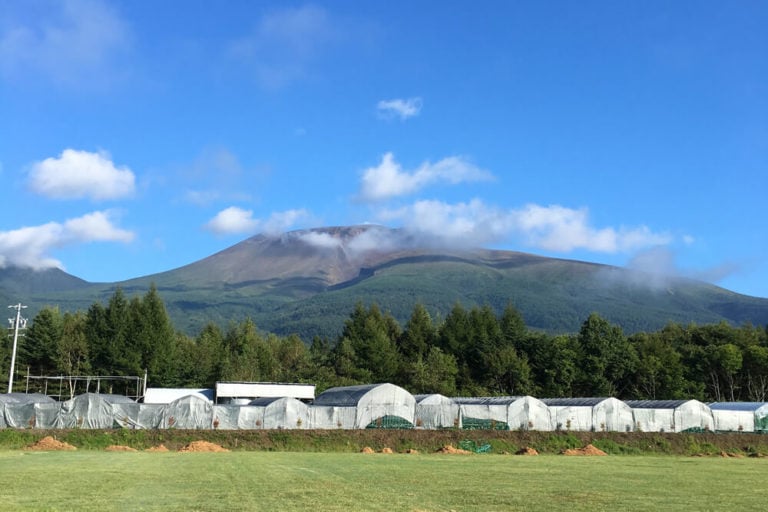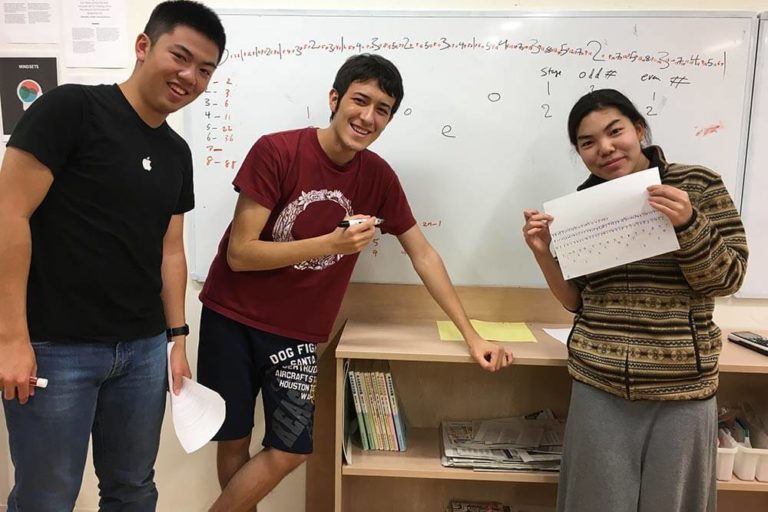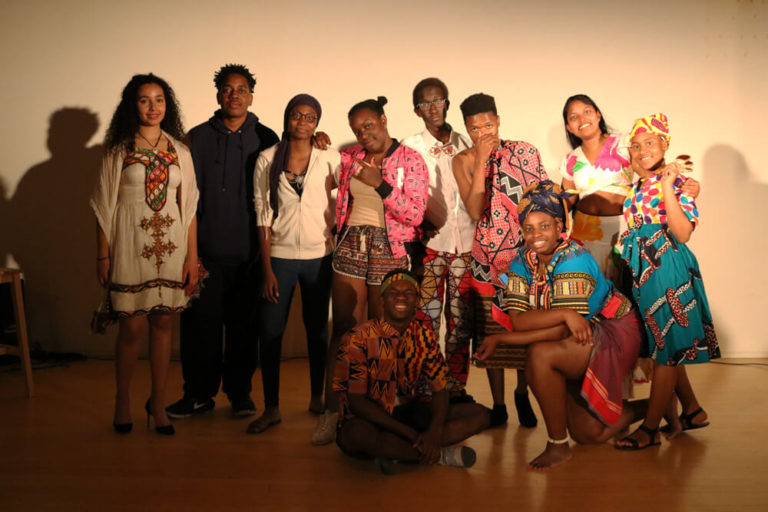 Written by Raffaela Corrias
Written by Raffaela Corrias
Ms. Corrias coordinates the UWC ISAK Japan Interfaith Program and Advisory program.
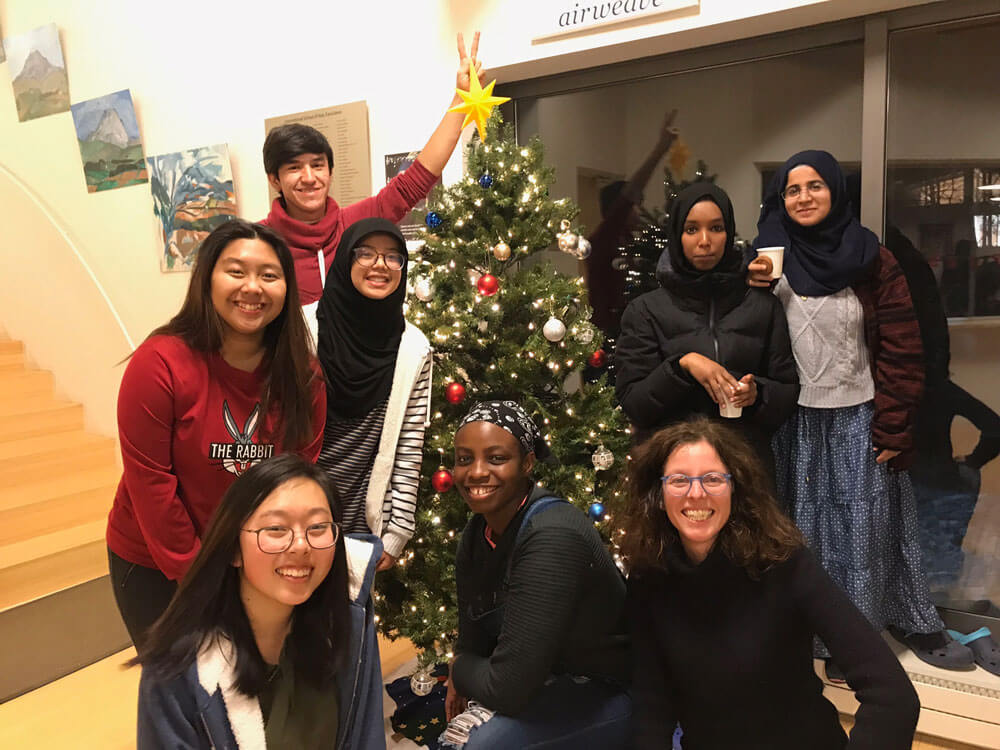
Building knowledge about religions represents a critical dimension to understanding modern human affairs. The development of our Interfaith Program is based on this belief as well as on the awareness that religions are embedded in human cultures. A meaningful exploration of culture and identity cannot overlook the sphere of personal religious beliefs.
The aims of the Interfaith Program are:
-
- to support students in their UWC ISAK Japan journey based on their faiths/beliefs
- to help students develop dialogue skills so that they are empowered to listen and learn from each other
- to offer students opportunities to be exposed to Japanese culture and spirituality
- to contribute to making different religious traditions a force for peace in our community and beyond, instead of a cause of conflict, radicalization and fundamentalism
Throughout the school year, the program offers pastoral interfaith support to students, along with a variety of activities such as dialogue sessions, field trips, experiential sessions, and an annual festival. Living in a multicultural and multi-religious environment brings along challenges; the program aims to provide students with a space to express their needs as well as to help them practice what is important to them during their time at UWC ISAK.
A couple of examples of how this support has been put into practice this year are the opening of a prayer room on campus and a weekly Bible study group for students which is led by two volunteers from a non-denominational Christian church in Karuizawa.
Students are also encouraged to share with the community about what is meaningful to them. Last Friday, for example, a group of students organized an open event called “The Origins of Christmas”. Christian and non-Christian students collaborated in putting together a storytelling session about the origins of Christmas. The session was followed by Christmas carols and hot chocolate.

Last year, a similar celebration was organized to commemorate Ramadan. Students from the Interfaith group hosted ‘Iftar’, the breaking of the fast Muslims celebrate every evening during their holy month of Ramadan.
During our weekly dialogue sessions, we focus each time on a different topic (e.g. friendship, nature, devotion, the afterlife, …). The topics are explored from the perspective of all participants through the lenses of their respective religious beliefs. Atheists and agnostics are also welcome to share according to their personal views. We always end our sessions with a moment of silence as an opportunity to be united in our differences.
The dialogue sessions represent a powerful way for all participants to explore and share important aspects of their lives, to learn to engage with personal beliefs, doubt and diversity, and to acquire some meaningful knowledge about religions.
The goal of the trips and experiential sessions is to expose the students to a variety of religious and spiritual experiences. On Sunday, December 3rd, a group of UWC ISAK students headed to Nagano to visit Zenko-ji Buddhist Temple. Zenko-ji is a pilgrimage destination for several million of pilgrims every year. Two tour guides introduced us to the history of the temple and to the form of Buddhism which is practiced there. We had the opportunity to experience a Zen meditation session lead by a monk.
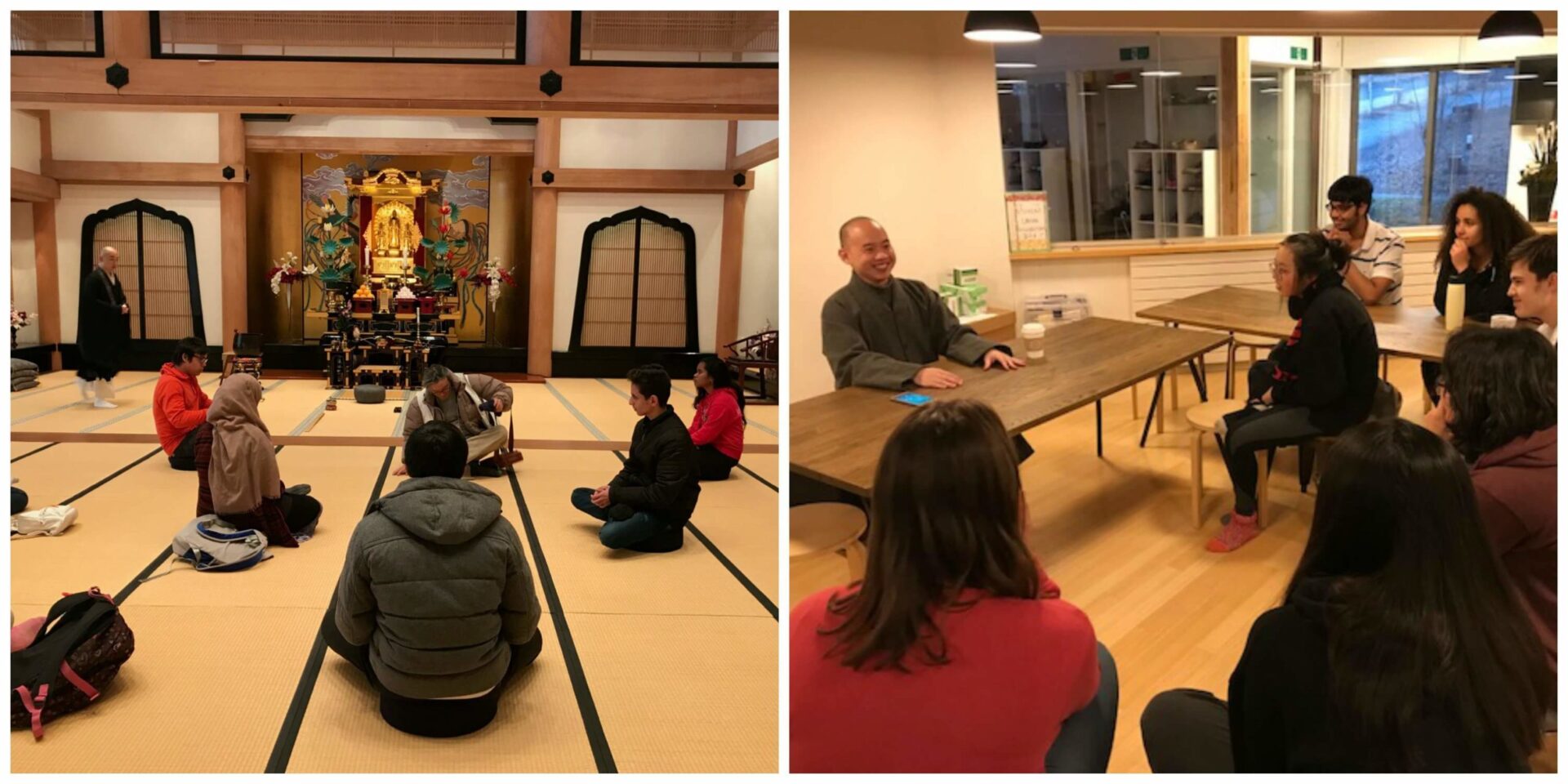
On December 5th, Ru Jing, a monk from Malaysia, visited our school to share his personal journey. His workshop, “From Computer Engineering to Interior Engineering: Ancient Tools for Modern Well-Being”, introduced participants to some meditation techniques.
On April 7 and 8, 2018, the group will host a festival on campus. The theme of the Festival will be “Body and Space: Feeling the Infinite”. Students will be invited to work and reflect on their relationship with self and others through the experience of their bodies and the exploration of sacred places.
The Interfaith Programme will keep empowering and supporting our students and the community as a whole to flourish in their own beliefs, to grow in mutual understanding, to build trust, and to keep developing the ability not only to tolerate diversity, but to celebrate it and, through this, to become engaged world citizens and better people.
There is one mountaintop, but many different paths to get to it.
